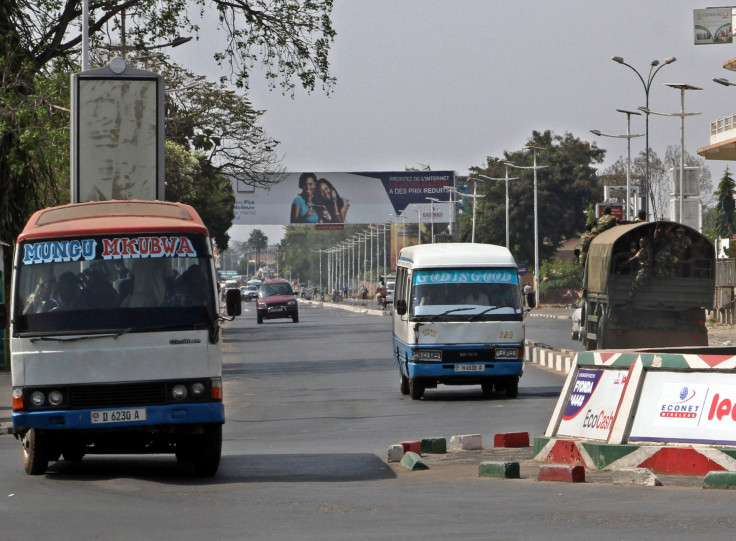Burundi Journalist Attack: AFP Reporter Detained, Beaten Amid Deteriorating Environment For Press

Esdras Ndikumana was photographing the scene of a deadly attack in Burundi’s capital Sunday when security forces grabbed him and hauled him to their offices. In two hours, he was beaten, Ndikumana told Agence France-Presse, for whom he was a correspondent.
Members of the National Intelligence Service beat Ndikumana’s back, legs and the soles of his feet before releasing him. He was subsequently hospitalized. The news agency said it would look into the event.
"We will seek explanations from the authorities in Burundi and an assurance that such an incident will not happen again," Michele Leridon, AFP’s global news director, said in a statement. "Our correspondent must be able to continue to carry out his work in complete safety."
In Sunday’s attack, a rocket hit the car of General Adolphe Nshimirimana, an aide to Burundian President Pierre Nkurunziza who was considered by some to be his de facto deputy, killing the general and three of his bodyguards.
Am horrified at the killing of Gen. Adolphe Nshimirimana, #Burundi’s Intelligence Service Head & his bodyguards today in #Bujumbura.
— Dr Dlamini Zuma (@DlaminiZuma) August 2, 2015Nshirimimana was regarded as instrumental in foiling an attempted coup in May in Burundi. Nkurunziz, the president, was elected in July for a third term after months of protests left at least 100 people dead. Burundi’s constitution limits the president to two terms. More than 8,000 Burundians have fled their country in the wake of violence.
Members of the opposition reportedly disappeared throughout the unrest prior to the elections. The government there has also “repeatedly harassed opposition parties, civil society activists, and journalists,” a report by Human Rights Watch found.
In June, a grenade was thrown at the home of radio reporter Diane Nininahazwe, who had recently covered allegations of kidnappings and lootings in a province in northwestern Burundi.
The attack on Ndikumana also came just days after Reporters Without Borders, a no-profit based in France that works to protect journalists and freedom of the press, questioned the future of media freedom in Burundi, pointing to a “news blackout” imposed by the sitting president during the recent elections. Four of the country’s major private radio stations are currently closed while dozens of journalists have fled the country and have no immediate plans to return.
© Copyright IBTimes 2024. All rights reserved.












